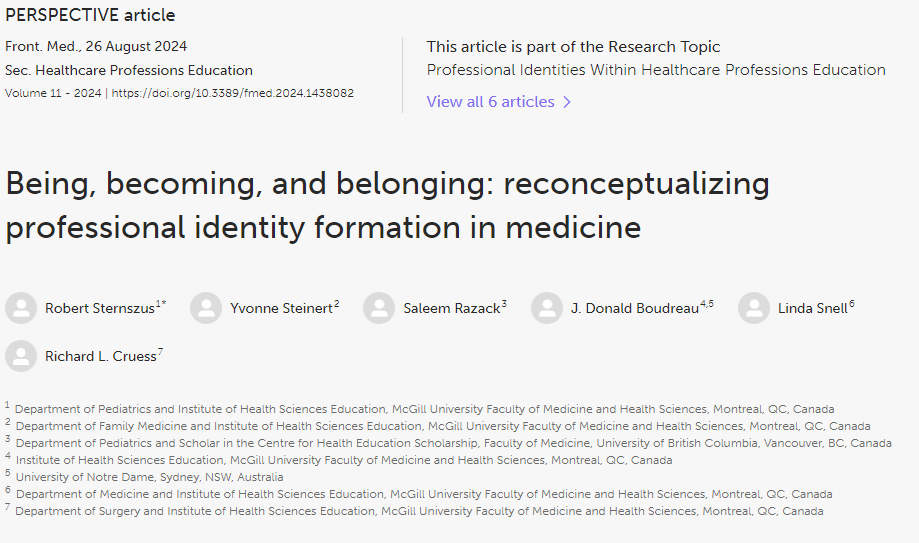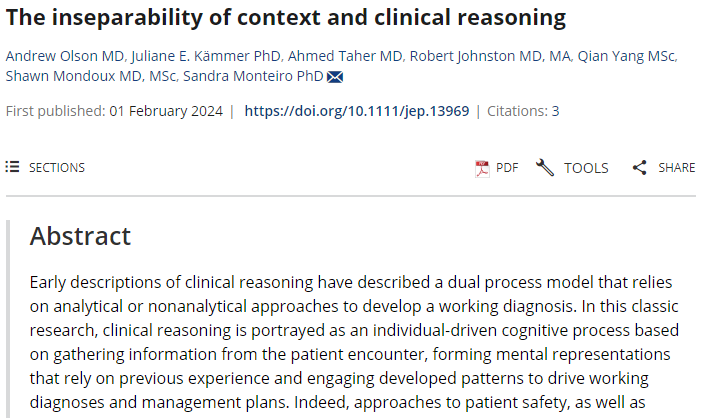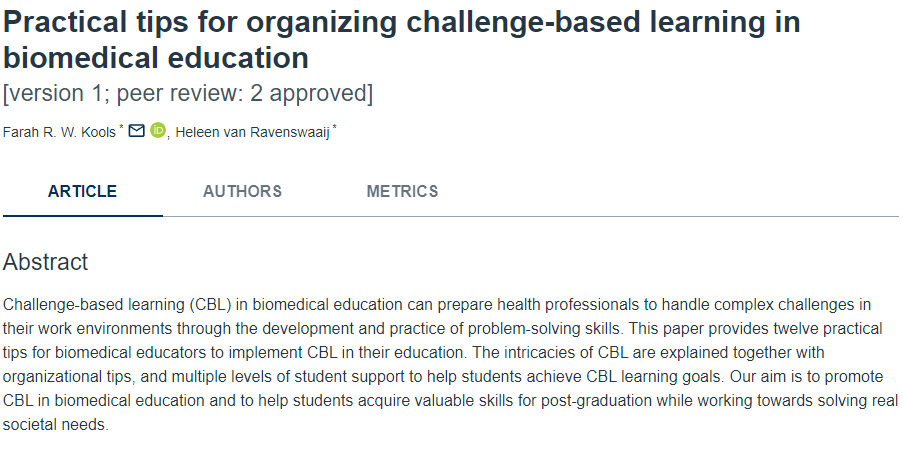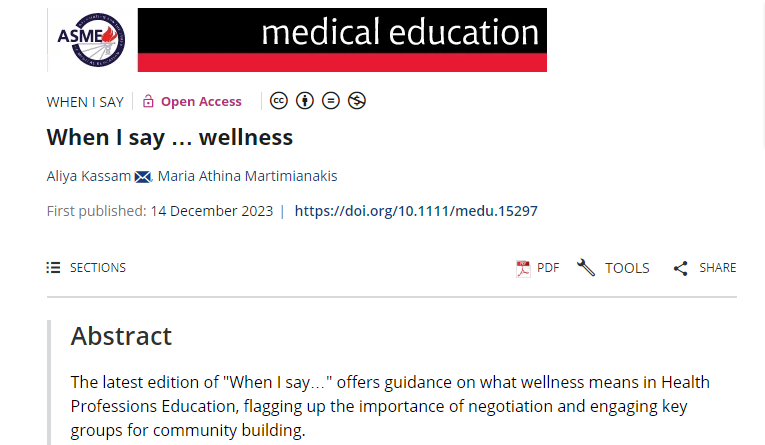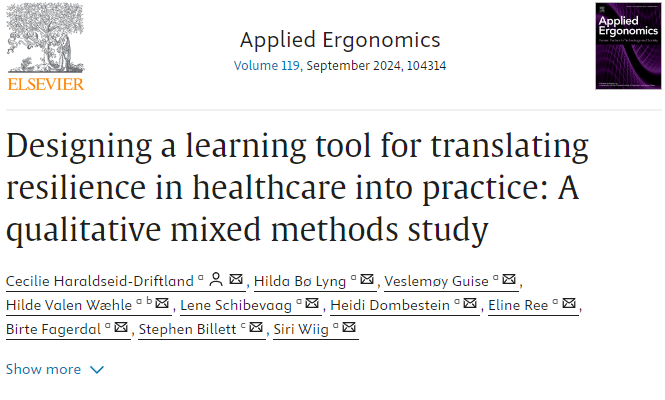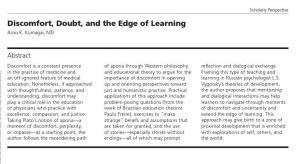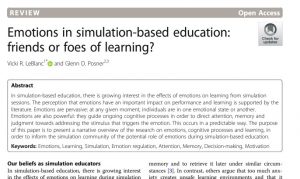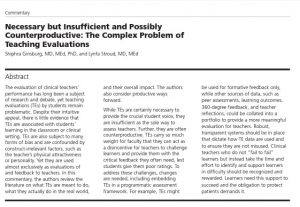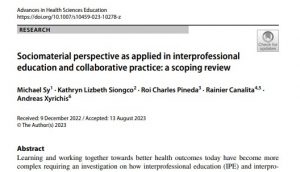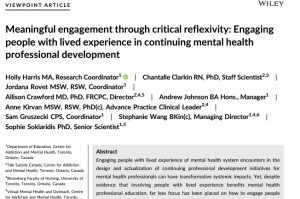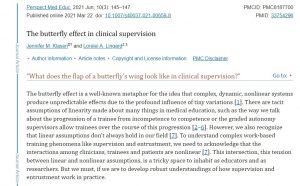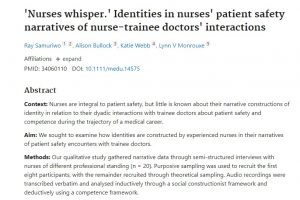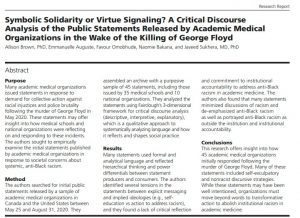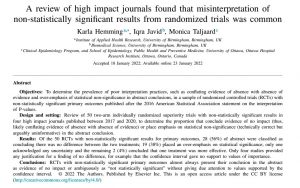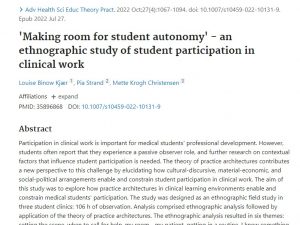
BPER
Reads

5 champions, 5 papers, 1 winner
Join us for BPER Reads, our annual “Battle of the Papers” where 5 scholars in our community champion the one paper of the past academic year they feel every health professional educator must read.
We start in November with 5 scholars in our community championing one paper of the past academic year they feel every health professional educator must read. Voting stays open until the second week of January.
Please click here to register for the rounds and receive the papers.
Voting now closed
The Champions

Lynne Sinclair: Lynne Sinclair is a Physiotherapist and the Senior Consultant: Partnerships & Innovation at the Centre for Advancing Collaborative Healthcare & Education (CACHE), University of Toronto (UT). She holds an Assistant Professor appointment with the Department of Physical Therapy, Temerty Faculty of Medicine at UT. Lynne was one of the founding leaders that helped create the Centre for IPE in 2009 and one of the original faculty developers of the ehpic™(Educating Health Professionals in Interprofessional Care) program in 2005. Lynne has been honoured with multiple awards for teaching and health care education excellence and from 2017-2024 she was appointed an Adjunct Associate Professor at the Faculty of Health and Behavioural Sciences, The University of Queensland, Australia. She also served as a member of the Board of Directors for the Canadian Interprofessional Health Collaborative (CIHC) from 2018-2024. Lynne is passionate about supporting leaders and teams at the interface between practice and education. She has wide expertise and publications in quality improvement, patient safety, intersectoral communication, and team-based practice. Outside of work, Lynne can be found at her cottage with her large extended family and friends, including three granddaughters, plus her energetic dog Kayla.
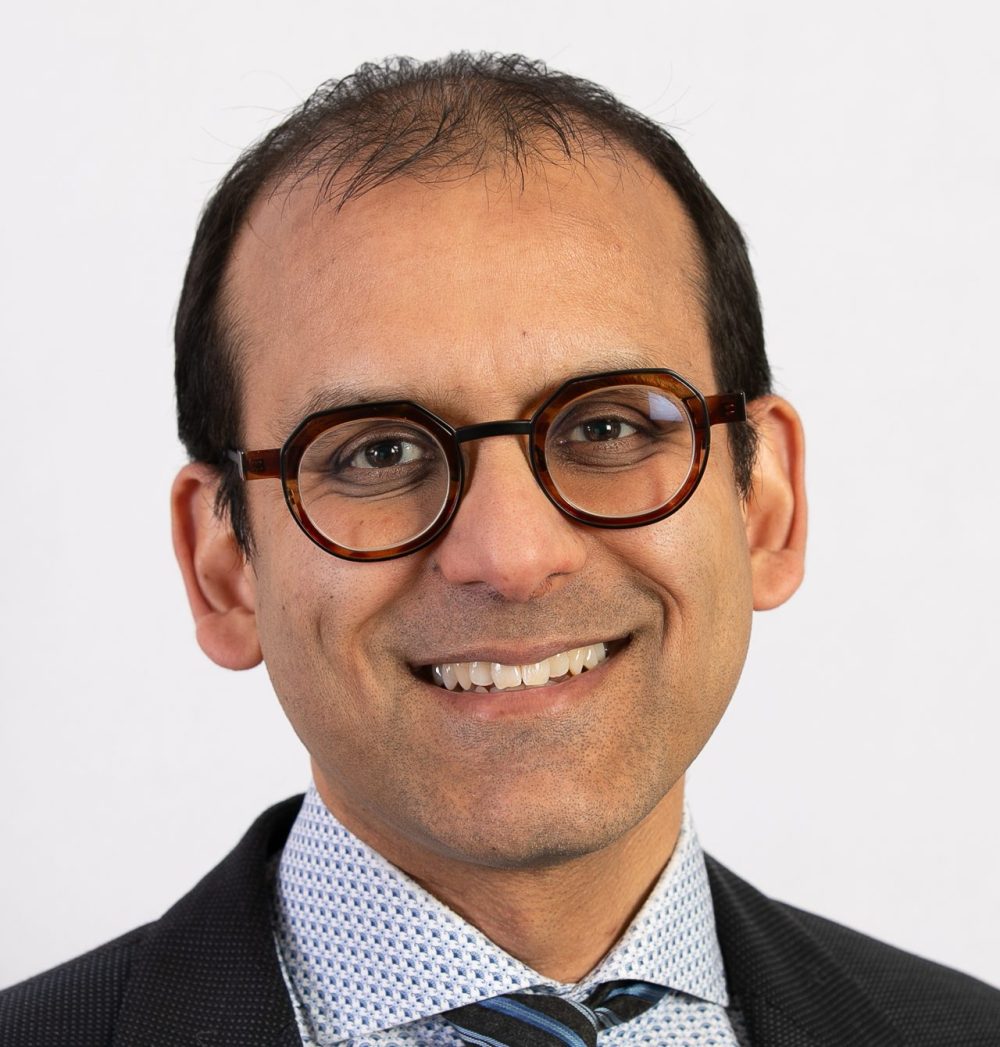
Sacha Agrawal: Sacha Agrawal MD MSc FRCPC is an associate professor in the Department of Psychiatry at the University of Toronto, staff psychiatrist and education scholar at CAMH, and advisor (for inclusion and co-production) at CACHE. He frequently teaches psychiatry residents and medical students, and he serves as faculty member of the Collaborative Change Leadership program at UHN and coach with the Education Scholars Program at CFD. Sacha completed medical school at the University of Toronto, his psychiatry residency and Master’s degree in health research methodology at McMaster, and a fellowship in public psychiatry at Yale. He has developed and researched a number of initiatives related to the involvement of patients (service users) in health professions education. His academic interests include pedagogies of social justice and adaptive expertise. Sacha enjoys taking walks in the woods, cooking (and eating!) plant-based foods, and making music with his kids.
The Papers
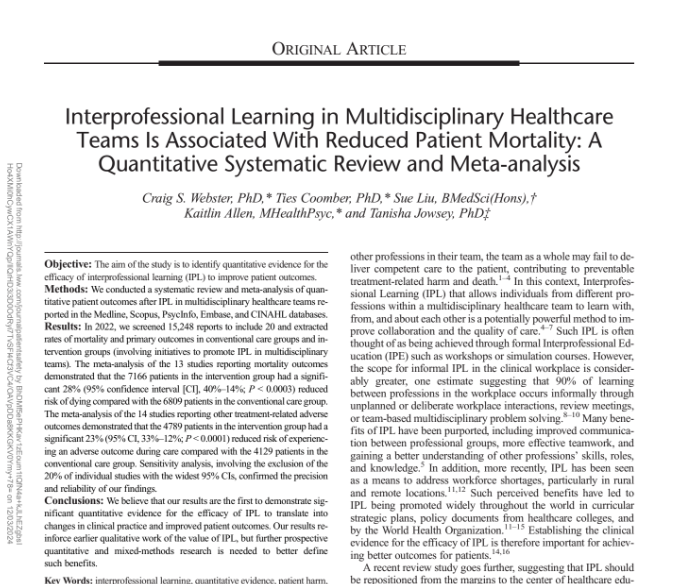
Webster CS, Coomber T, Liu S, Allen K, Jowsey T. Interprofessional Learning in Multidisciplinary Healthcare Teams Is Associated With Reduced Patient Mortality: A Quantitative Systematic Review and Meta-analysis. J Patient Saf. 2024 Jan;20(1):57–65. doi: 10.1097/PTS.0000000000001170.
Championed by: Lynne Sinclair
As the calls for interprofessional team-based collaborative healthcare and education continue to grow, have you, or leaders you know, questioned the evidence for the effectiveness of interprofessional practice? Everyone involved in healthcare and healthcare education should read the article “Interprofessional Learning in Multidisciplinary Healthcare Teams Is Associated With Reduced Patient Mortality: A Quantitative Systematic Review and Meta-analysis” because it provides robust evidence supporting the value of interprofessional learning (IPL) in improving patient outcomes. Through a systematic review and meta-analysis encompassing more than 15,000 reports and over 14,000 patients, the authors demonstrate that teams engaged in IPL had a significant 28% reduction in patient mortality and a 23% reduction in adverse treatment outcomes. This finding offers objective data that IPL not only enhances teamwork and communication but also translates directly to better clinical results and safer care for patients. The authors boldly state that it is questionable to assess educational interventions or quality/safety initiatives with RCTs and thus this study includes cohort and quasi-experimental studies. Since two heavily cited Cochrane reviews have reported mixed results of the impacts of interprofessional collaboration on healthcare outcomes, this systematic review and meta-analysis provide valuable insights into IPL’s effectiveness. Given the growing emphasis on collaborative team-based healthcare and education, these findings are highly relevant to help inform daily clinical interactions, policy, curriculum and professional development.
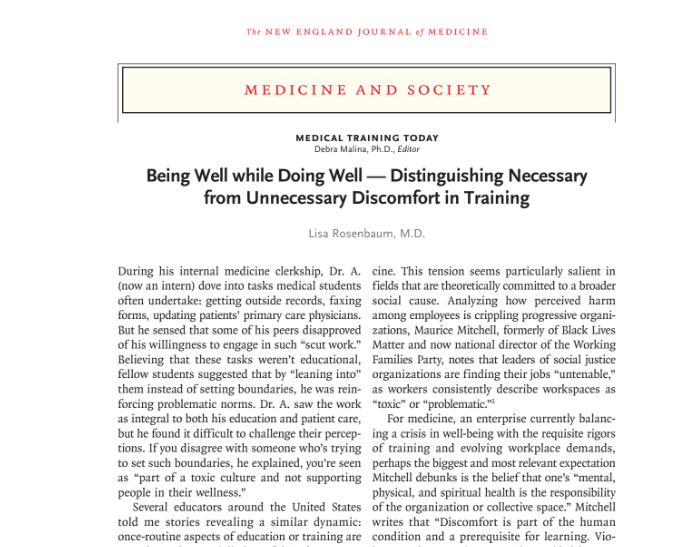
Rosenbaum L. Being Well while Doing Well – Distinguishing Necessary from Unnecessary Discomfort in Training. N Engl J Med. 2024 Feb 8;390(6):568-572. doi: 10.1056/NEJMms2308228. Epub 2024 Jan 17. PMID: 38231543.
Championed by: Sacha Agrawal
I love this article because it discusses an important issue that can be difficult to speak about, namely the tension that sometimes shows up between our commitment to deliver excellent care to our patients and the evolving value of workforce wellness. Of course, we know that to do excellent work, healthcare professionals need to feel well — “you can’t give from an empty cup,” the saying goes. But what happens when wellness and excellence conflict? How can we lean into the value of productive struggle, without causing harm? How can we address the historic injustices that our systems have perpetuated on trainees, while also instilling and carrying forward good stuff like a commitment to hard work and service? How can we support learners who have experienced systemic discrimination, exclusion and disability, while preparing all learners to thrive in the messy and demanding world that is healthcare? What is at stake if we prioritize wellness over excellence? How well is well enough? The author brings nuance to these critical questions at a time when binary thinking and polarization are on the rise.
Past Papers
2025-2026 Papers
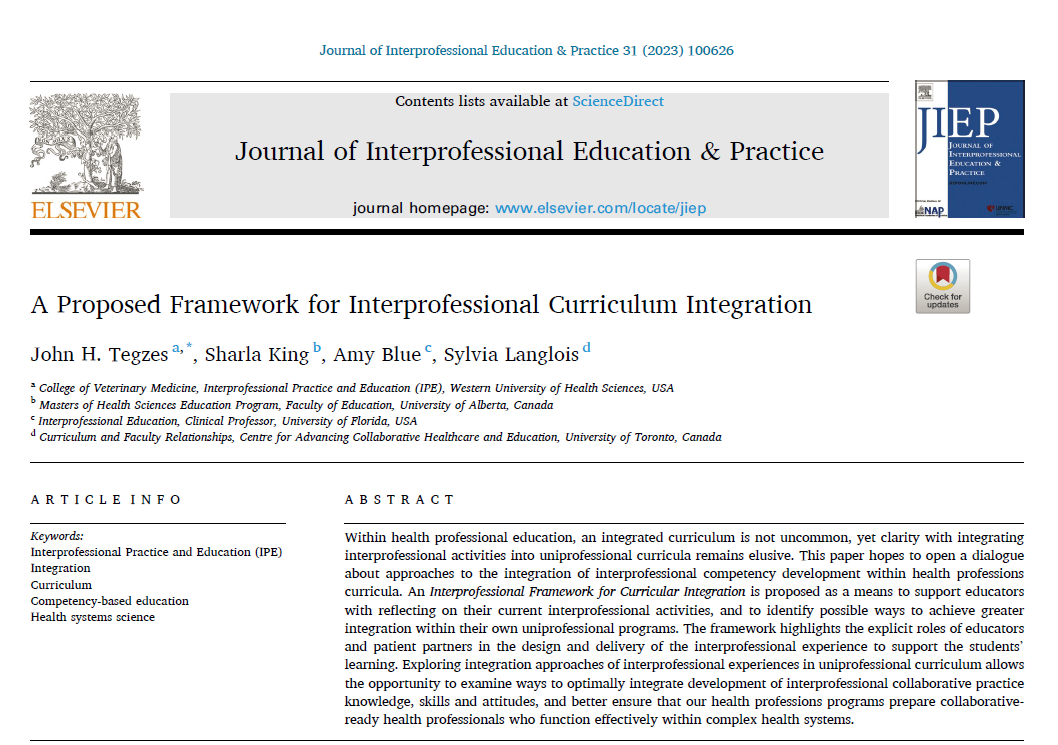
Tegzes, J., King, S., Blue, A., & Langois, S. (2023). A Proposed Framework for Interprofessional Curriculum Integration. Journal of Interprofessional Education & Practice, 31, 100626.
Championed by: Rachelle Ashcroft
The reason why I love this article and think that all healthcare educators need to read it is because it provides a much-needed framework aimed at healthcare educators that helps us reflect on our individual and institutional approaches to interprofessional education. The article provides clear explanations to help uniprofessional and interprofessional programs identify ways to enhance and strengthen interprofessional education. The article is conceptual and provides direction for action, which is a great strength. With the increasing emphasis and need for creating and strengthening interprofessional health care teams, this article provides direction and a common language for educators across all health programs. An additional reason to love this article is that it was co-authored by Dr. Sylvia Langlois who has been a longstanding champion and mentor to so many of us.
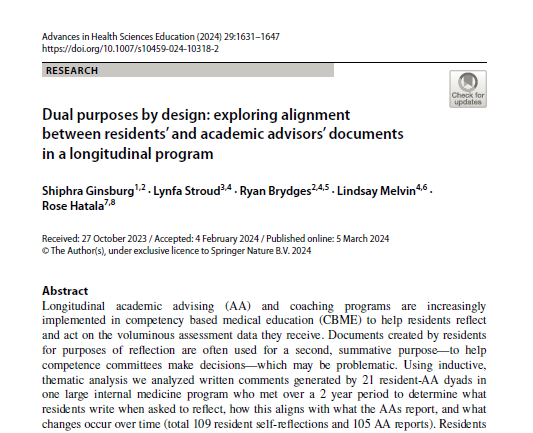
Ginsburg S, Stroud L, Brydges R, Melvin L, Hatala R. Dual purposes by design: exploring alignment between residents’ and academic advisors’ documents in a longitudinal program. Adv Health Sci Educ Theory Pract. 2024 Nov;29(5):1631-1647. doi: 10.1007/s10459-024-10318-2. Epub 2024 Mar 5. PMID: 38438699.
Championed by: Tina Martimianakis
Shiphra Ginsburg and colleagues provide an impressive analysis of documents generated during resident and academic advisor meetings, that includes unintentional effects emerging from dual purposing notes for both formative and summative progress evaluations. This paper is a must read for scholars interested in supporting resident development. While not setting out to study hidden curriculum effects, the analysis of texts revealed the impact of specific curriculum organizational elements, while generating insights into the culture of the department. The paper is also an excellent methodological example of conducting research using pre-existing data sources. The sampling strategy is clever providing rich confirmation of trends, consistent with a post-positivist approach. The presentation of their findings is clear, thorough and well situated in the literature, leading the reader to a generous overview of potential implications of the work. One of the most useful papers I read last year, that continues to inform my work.
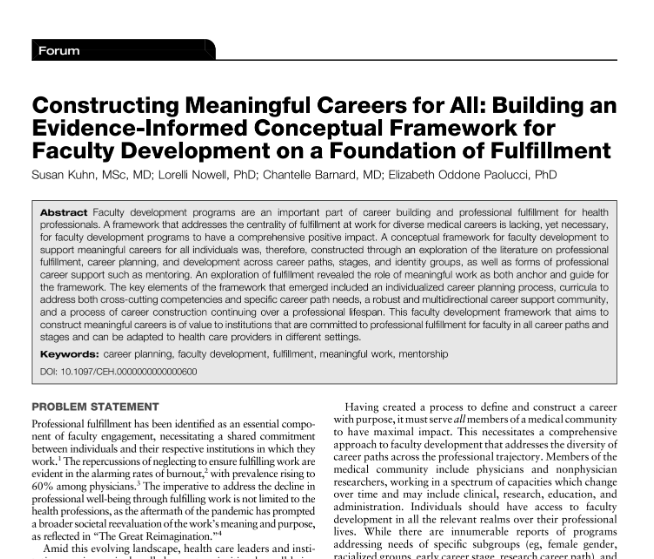
Kuhn S, Nowell L, Barnard C, Oddone Paolucci E. Constructing Meaningful Careers for All: Building an Evidence-Informed Conceptual Framework for Faculty Development on a Foundation of Fulfillment. J Contin Educ Health Prof. 2025 Summer 01;45(3):182-188. doi: 10.1097/CEH.0000000000000600. Epub 2025 Mar 12. PMID: 40071961.
Championed by: Latika Nirula
I have recently been reflecting a lot on the role of identity and meaning in work, and the role of faculty development in cultivating this. This paper by Susan Kuhn and colleagues offers a wonderful conceptual framework that pulls together many concepts I (and the CFD) have been exploring in mentorship, coaching, communities of practice, and within longitudinal programs. This paper asks the important question about: How and what do we need to find fulfillment in our work in health professions education and research? I hope reading this paper will prompt reflections from readers and our community about the important role that faculty development can play in supporting people in finding meaning in their roles within health professions education. I am already thinking about how we can consider this framework in the design of our programs!
2024-2025 Papers
Sternszus, R., Steinert, Y., Razack, S., Boudreau, J. D., Snell, L., & Cruess, R. L. (2024). Being, becoming, and belonging: reconceptualizing professional identity formation in medicine. Frontiers in medicine, 11, 1438082. https://doi.org/10.3389/fmed.2024.1438082
Championed by: Karen Leslie
Physician/health care professional identity underpins much of what transpires in healthcare and health professions contexts and culture. The roles and practices in the health care and health professions education are influenced by each and every individual in them.
This paper describes a ‘reworked’ framework on how professional identity develops for physicians (and can be extended to all health professionals). The authors describe the limitations of the previous framework and the deliberate changes made in this newer version. These changes recognize longstanding structural inequalities within society and the profession (s) and how these have threatened the identities of those entering into these spaces. They also aim to de-emphasize the preferences of culturally dominant groups. Noted in this new model is the recognition of the importance of belonging or exclusion on an individual’s sense of professional self and the importance of critical reflexivity.
Consideration of this model, and the elements and process it includes has relevance for clinicans, learners, teachers, educators, faculty developers, leaders and scholars in both the health care and health professions education contexts as these spaces encompass the ‘communities of practice’ in which we all work, learn, teach and lead.
Olson, A., Kämmer, J. E., Taher, A., Johnston, R., Yang, Q., Mondoux, S., & Monteiro, S. (2024). The inseparability of context and clinical reasoning. Journal of evaluation in clinical practice, 30(4), 533–538. https://doi.org/10.1111/jep.13969
Championed by Nathan Cupido
Context is everything—just by writing this blurb, I’m providing some context as to why this is my favourite paper of the year. How this context might influence whether you agree with my position, however, can be a complicated and overlooked process. Similarly, within health professions education literature, the relationship between context and clinical reasoning has long been implicated; however, what exactly is meant by “context” in this literature is often vague, undefined, or oversimplified. In their paper, Olson et al. help to better delineate how we discuss context in relation to clinical reasoning and—consequently—what this relationship means for how we structure our research and training. This latter aim is crucial to helping bring a consideration of context to the forefront of our education practices. Yes, context is everything—and as Olson et al. highlight, accounting for context is essential in preparing health professionals to deliver safe and effective care.
Kools, F. R. W., & van Ravenswaaij, H. (2023). Practical tips for organizing challenge-based learning in biomedical education. MedEdPublish (2016), 13, 271. https://doi.org/10.12688/mep.19755.1
Championed by: Amanda Binns
Design and delivery of education within health professions involves both art and science. I chose the article by Kools & van Ravenswaaij because it effectively captures this dual nature of education in the health professions. Capturing the complexity of educational design and delivery in writing can be challenging, especially in a way that promotes real-world application. This article excels in clearly articulating intricate ideas while offering practical tips and examples, making it accessible and likely to have a meaningful impact on educators and researchers in our community.
Kassam, A., & Martimianakis, M. A. (2024). When I say … wellness. Medical education, 58(4), 380–381. https://doi.org/10.1111/medu.15297
Championed by Robyn Davies
We are hearing more and more about wellness. We see our healthcare and academic institutions putting resources into wellness, including hiring wellness coordinators, providing wellness apps, creating wellness space etc. In healthcare education, we are concerned about the wellness of our learners and of the workforce, into which they will soon be venturing. But what does wellness mean?
When I say….wellness is part of the “When I say…” series published in Medical Education. True to the journals intention, the authors, Kassam and Martimianakis, offer the reader a short and pithy exploration of the meanings of wellness. This seemingly simple concept is exposed as a complex, intersectional construct that should have educators considering their approaches to their own and their learners’ wellness. When I say …wellness is a ‘must read’ for anyone who is considering wellness in their curriculum.
Haraldseid-Driftland, C., Bø Lyng, H., Guise, V., Valen Wæhle, H., Schibevaag, L., Dombestein, H., Ree, E., Fagerdal, B., Billett, S., & Wiig, S. (2024). Designing a learning tool for translating resilience in healthcare into practice: A qualitative mixed methods study. Applied ergonomics, 119, 104314. https://doi.org/10.1016/j.apergo.2024.104314
Championed by: Joanne Goldman
My chosen paper ‘Designing a learning tool for translating resilience in healthcare into practice: A qualitative mixed methods study’ focuses on ‘resilience in healthcare’, defined as a “system’s ability to adapt to challenges and changes at different system levels to enable continuous provision of high quality care”. While there have been many efforts over the past two decades to bring safety concepts from other fields into healthcare, the ‘learning’ aspects can be underdeveloped and undertheorized. This paper reports on a rigorous, extensive and iterative research process to developing a learning tool that involved a literature review, interviews and focus groups, workshops, and observations, as well as researcher and design team meetings. The resilience learning tool was designed as a webpage where groups of healthcare professionals can interact with different aspects that can facilitate gaining a better understanding of the resilience performance of their workplace by assessing and discussing everyday practice. I was intrigued by the explicit details provided to how 8 learning principles identified (e.g., create collaboration across levels, stakeholders and contexts; descriptions of resilience capacities) were operationalized to develop all the elements of the learning tool as well as the attention to the underpinning learning theory of social constructivism and the pedagogic quality to promote interaction between the tool and the users. This paper is innovative in highlighting the way that education theory, research and safety science can come together in designing collaborative workplace-based learning to optimize quality and safety within and across healthcare contexts.
2023-2024 Papers
Kumagai, A. Discomfort, Doubt, and the Edge of Learning. Academic Medicine, Vol. 97, No. 5 / May 2022
Championed by: Beck McNeil (Finalist)
LeBlanc, V. R., & Posner, G. D. (2022). Emotions in simulation based education: Friends or foes of learning? Advances in Simulation, 7(1), 3.
Championed by Jordan Holmes (Finalist)
Ginsburg S, Stroud L. Necessary but insufficient and possibly counterproductive: the complex problem of teaching evaluations. Acad Med. 2023;98:300–303.
Championed by John Teshima
Sy, M., Siongco, K.L., Pineda, R.C. et al. Sociomaterial perspective as applied in interprofessional education and collaborative practice: a scoping review. Adv in Health Sci Educ (2023)
Championed by Farah Friesen
Harris, H, Clarkin, C, Rovet, J, et al. Meaningful engagement through critical reflexivity: engaging people with lived experience in continuing mental health professional development. Health Expect. 2023; 26: 1793-1798.
Championed by Morag Paton & David Wiljer
2022-2023 Papers
Klasen, JM, Lingard LA. The Butterfly Effect in Clinical Supervision. Perspect Med Educ. 2021 Jun; 10(3): 145–147.
Championed by Ivan Silver (Finalist)
Samuriwo, R., Bullock, A., Webb, K., & Monrouxe, L. V. (2021). ‘Nurses whisper.’ Identities in nurses’ patient safety narratives of nurse-trainee doctors’ interactions. Medical Education, 55(12), 1394-1406.
Championed by Paula Rowland (Finalist)
Brown, A., Auguste, E., Omobhude, F., Bakana, N., Sukhera, J. (2022). Symbolic Solidarity or Virtue Signaling? A Critical Discourse Analysis of the Public Statements Released by Academic Medical Organizations in the Wake of the Killing of George Floyd. Academic Medicine 97(6):p 867-875.
Championed by Malika Sharma
Hemming K, Javid I, Taljaard M. A review of high impact journals found that misinterpretation of non-statistically significant results from randomized trials was common. J Clin Epidemiol. 2022 May;145:112-120.
Championed by Adam Gavarkovs
Kjær, L.B., Strand, P. & Christensen, M.K. ‘Making room for student autonomy’ – an ethnographic study of student participation in clinical work. Adv in Health Sci Educ (2022).
Championed by Kathryn Parker
Upcoming Events
-
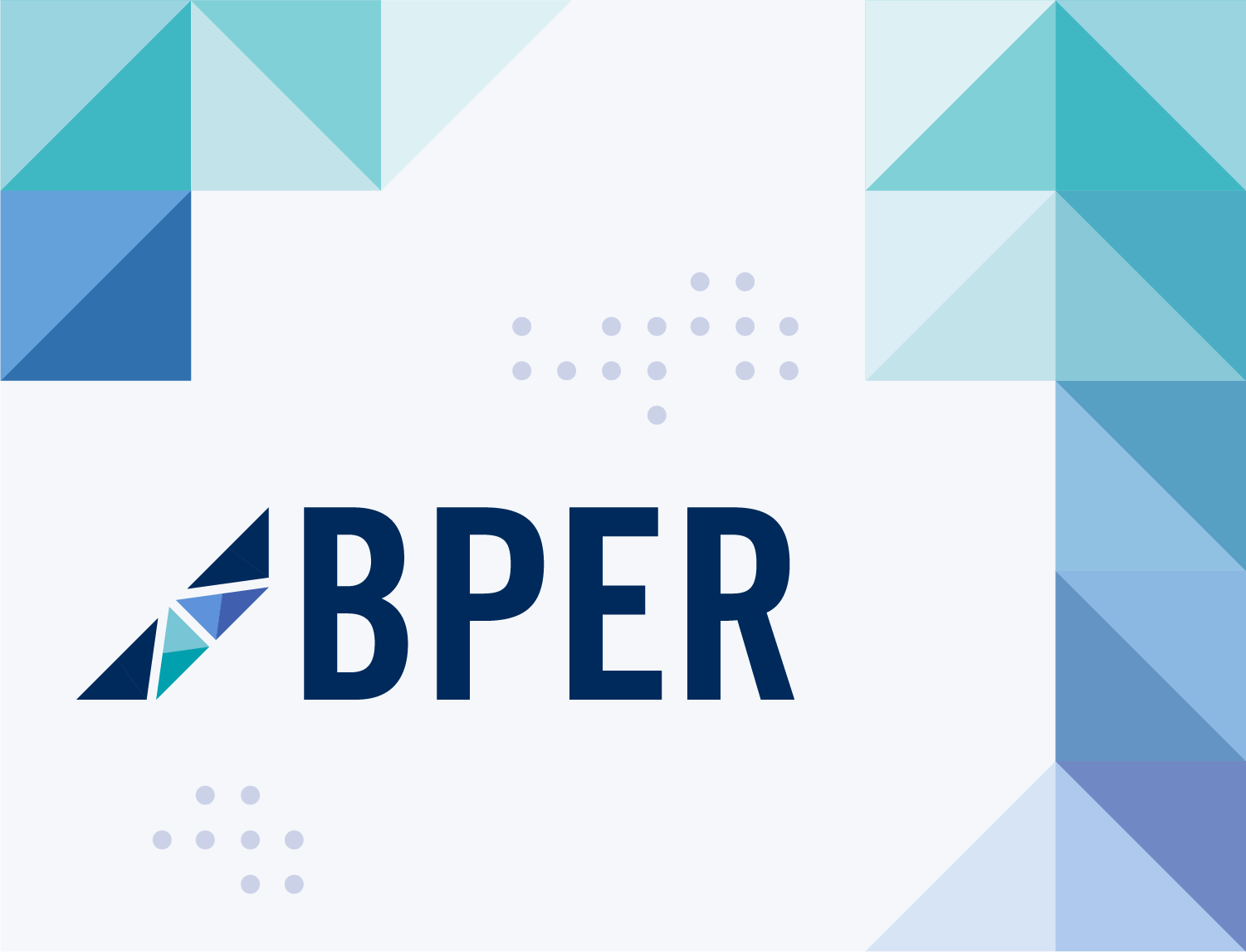 10FebPlease join us for BPER Reads, our annual "Battle of the Papers"! We began this November with 5 scholars championing one paper of the past academic year they feel every health professional educator must read. We now have our top two papers! Join us for the discussion!
10FebPlease join us for BPER Reads, our annual "Battle of the Papers"! We began this November with 5 scholars championing one paper of the past academic year they feel every health professional educator must read. We now have our top two papers! Join us for the discussion! -
 18FebWhether you're new to program evaluation or refining your approach, this workshop will help you think critically and creatively about evaluation—so your efforts lead to deeper insights and more meaningful data-driven change.
18FebWhether you're new to program evaluation or refining your approach, this workshop will help you think critically and creatively about evaluation—so your efforts lead to deeper insights and more meaningful data-driven change. -
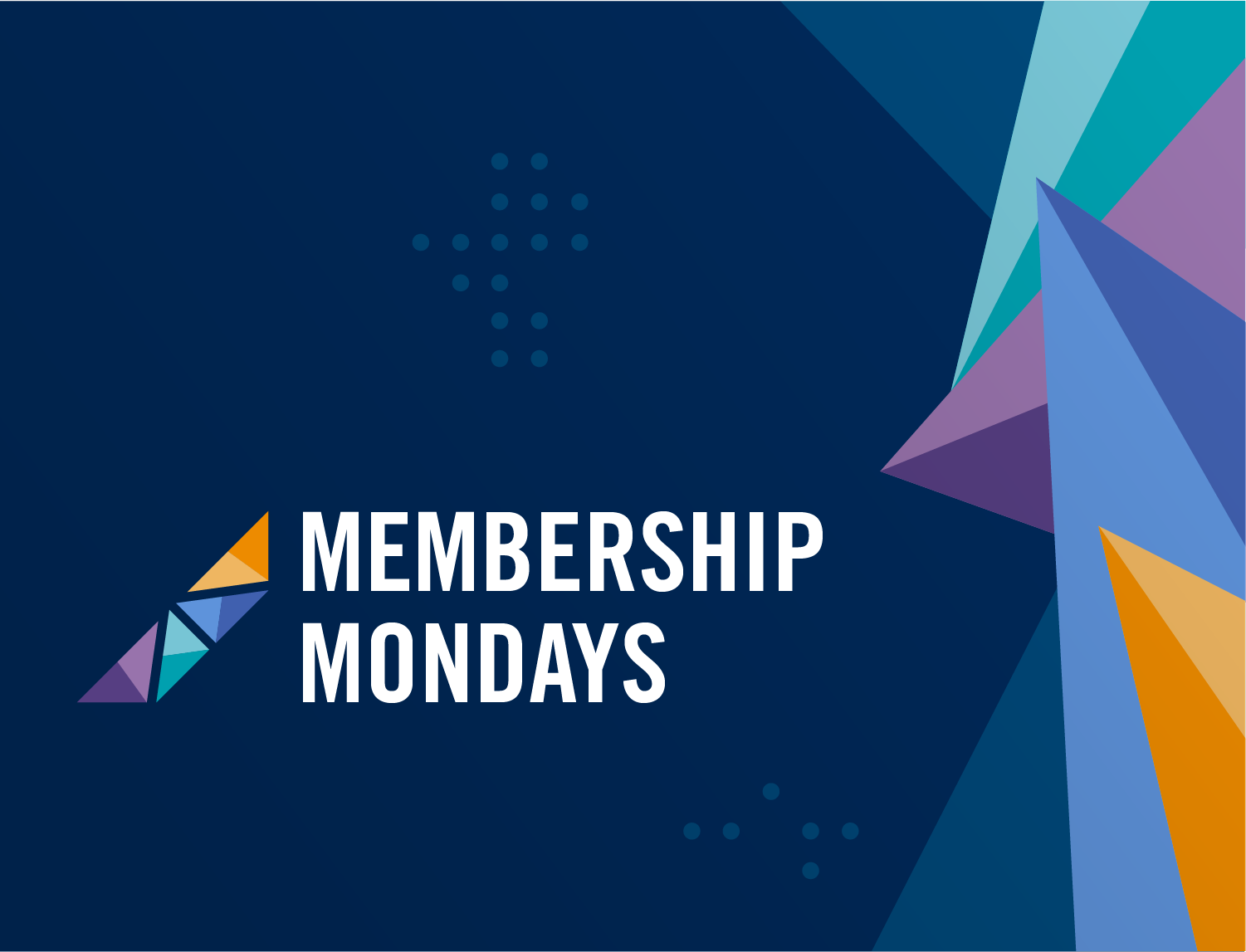 23FebThe Membership Mondays Community is for CFD members to engage in informal conversations on emerging curiosities, questions and tensions within health professions education. This community comes together virtually, three times a year. Topics are responsive to the needs of the community. Please join us to engage in thoughtful dialogue.
23FebThe Membership Mondays Community is for CFD members to engage in informal conversations on emerging curiosities, questions and tensions within health professions education. This community comes together virtually, three times a year. Topics are responsive to the needs of the community. Please join us to engage in thoughtful dialogue.
FAQs
Q. How do I create and/or activate my account to log into the site?
Q. Is there a cost to attend your programs?
A. There is a cost to participate in some of our programs. The cost of each of our programs varies and in some cases, the cost varies depending on your status with the Temerty Faculty of Medicine at University of Toronto and/or in which hospital you work as well as whether or not you have an annual CFD Membership.
Q.I do not have a faculty appointment in the Temerty Faculty of Medicine at the University of Toronto. Can I still attend your workshops, programs and/or events? Is there a fee?
A. Anyone whose education activities include teaching, leading, scholarship and advocacy are welcome to attend our workshops, programs and/or events. Specific pre-requisite criteria may apply. Please refer to each workshop, program or event page for details. All fees and discounts (where applicable) can be found in the workshop, program and event pages.
Q.I am interested in having one of your workshops offered at my home site/department. Do you offer this type of service?
A. Please contact us for further information. The availability of this service is dependent on the resources and capacity of the CFD at the time the request is made.
Q: Is having a CFD Membership the same as having a CFD account?
A: No, a CFD Membership is not the same as a CFD account. However, in order to complete your CFD Membership registration you will be prompted to create a CFD account if you do not already have one. To register for a CFD General Membership and create your account click here.
Need more help?
Our Programs
The CFD offers a number of exceptional programs to meet current and emerging faculty development needs across the health system. View the full listing of CFD’s programs to determine which may best meet your interests and needs.
